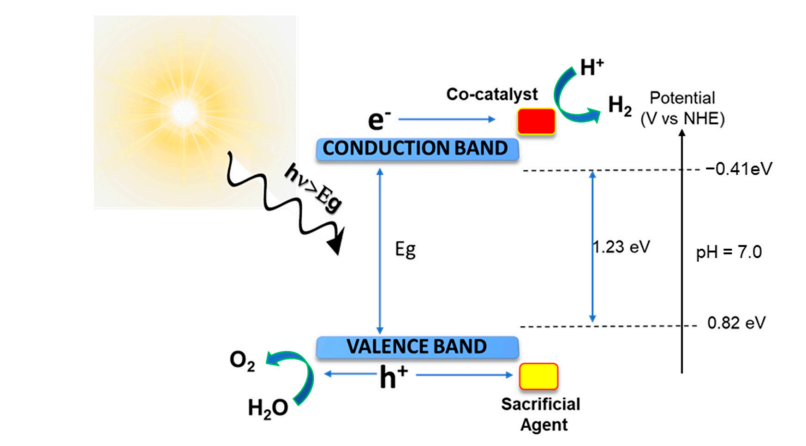Mechanistic Approach towards Designing Covalent OrganicFrameworks for Photocatalytic Hydrogen Generation
Abstract: Covalent organic frameworks (COFs) have unique features, including intrinsic porosity,crystallinity, and tunability, making them desirable materials for diverse applications ranging fromenvironmental remediation to energy harvesting. Among these applications, COFs are extensivelystudied for their photocatalytic hydrogen evolution by convertingsolar energy into clean andrenewable fuel via water splitting. COFs have several advantages over conventional inorganiccatalysts, such as tunable band structures, high surface areas, and low cost. However, the researchin this field is still in the early stages, and COFs still face some challenges, such as low chargecarrier mobility, high exciton binding energy, and poor stability. To overcome these challenges,various design strategies relying on a mechanistic approach have been developed to design and modify COFs for enhanced photocatalytic performance. These include extending the π-conjugation,incorporat-ing heteroatoms or metal complexes, and donor–acceptor (D–A) configuration, whichultimately improves the light absor-ption charge separation of COFs. Additionally, blending COFswith other functional materials, such as inorganic-organic semiconductors, can create synergisticeffects to boost photocatalytic activity. In this review, the design aspects of the fabrication of COFs as effective photocatalysts have been reported.

Khan N A, Azad C S, Luo M, et al. Mechanistic Approach towards Designing Covalent Organic Frameworks for Photocatalytic Hydrogen Generation[J]. Energies, 2023, 16(16): 5888.